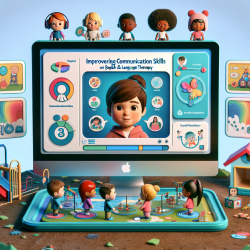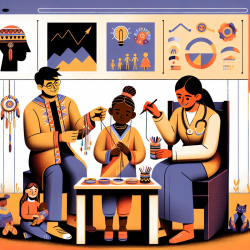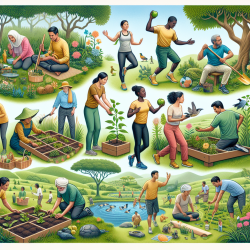Understanding the Biocultural Journey of British-Bangladeshi Girls
As practitioners dedicated to fostering positive outcomes for children, it's crucial to understand the unique challenges faced by British-Bangladeshi girls. The research article “I'm not a freshi”: Culture shock, puberty and growing up as British-Bangladeshi girls provides invaluable insights into the biocultural dynamics affecting these girls. By integrating these findings into practice, we can better support their developmental journey.
Key Findings from the Research
The study utilized a mixed-methods approach to explore how migration impacts puberty among Bangladeshi girls in the UK. It revealed that first-generation migrants experience earlier puberty compared to their second-generation counterparts and native Bangladeshi girls. This early maturation is linked to psychosocial stress and changes in dietary habits associated with migration.
Interestingly, while British-Bangladeshi girls embraced their religious identity, they often rejected cultural practices such as traditional dress and dietary habits. This rejection of cultural identity, coupled with the stress of migration, was found to contribute to elevated levels of dehydroepiandrosterone-sulfate (DHEA-S), a marker of early puberty.
Implementing Research Outcomes in Practice
Practitioners can leverage these insights to tailor interventions that address the unique needs of British-Bangladeshi girls. Here are some strategies:
- Cultural Sensitivity Training: Equip practitioners with the skills to understand and respect the cultural and religious identities of British-Bangladeshi girls. This can help in building trust and fostering open communication.
- Stress Management Programs: Develop programs that address the psychosocial stressors associated with migration. Techniques such as mindfulness and cognitive-behavioral therapy can be effective.
- Nutrition and Lifestyle Education: Educate families on the importance of balanced nutrition and its impact on puberty. Encourage dietary habits that align with both cultural preferences and health guidelines.
- Community Engagement: Collaborate with community leaders to create supportive environments that celebrate cultural diversity while promoting healthy development.
Encouraging Further Research
While this study provides a comprehensive overview, further research is needed to explore the long-term health implications of early puberty among migrant populations. Practitioners are encouraged to contribute to this growing body of knowledge by conducting longitudinal studies and sharing findings with the broader community.
By integrating these research outcomes into practice, we can empower British-Bangladeshi girls to navigate their developmental journey with confidence and resilience. To read the original research paper, please follow this link: "I'm not a freshi": Culture shock, puberty and growing up as British-Bangladeshi girls.










